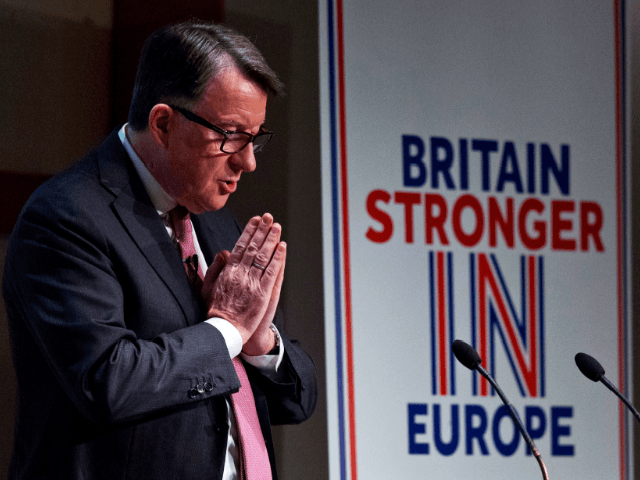AFP – A series of recent polls suggest a widening lead for supporters of Britain’s continued European Union membership, handing “Remain” campaigners a psychological boost three weeks before the country votes in a crucial in-out referendum.
The “Remain” camp leads the “Leave” camp by 53 points to 47, according to an average of the six most recent polls, published by research group What UK Thinks on Wednesday.
Even a majority of conservative and older voters, who two months ago looked set to vote to leave, are now in favour of remaining, according to a poll by the ORB institute, published in the Daily Telegraph on Tuesday.
“The Remain campaign continues to strengthen its position among voters with another week of effective campaigning while the Leave campaign dwindles, having failed to quell ongoing concerns about the financial and economic consequences of a Brexit,” Lynton Crosby, the political strategist who masterminded Prime Minister David Cameron’s 2015 general election victory, wrote in the paper.
“When it comes to which side ‘will create a stronger economy for the UK,’ Remain leads by 21 points with 54 percent, a four-point increase in their net lead since last week,” he added.
The British Treasury, the Bank of England, the International Monetary Fund and US President Barack Obama have all warned of negative economic consequences of a so-called Brexit.
British bookmakers are offering odds of 4/1 on the country voting to leave on June 23, estimating that it is twice as likely that Donald Trump will become the next US president.
Nigel Farage, head of the eurosceptic UK Independence Party, responded that “there is still a long way to go and it’s a mug’s game to predict how this referendum is going to go.”
But polling expert John Curtice, a professor at the University of Strathclyde, noted that the psychology of the campaign “had changed,” with the Remain camp apparently confident of its lead.
– ‘Mobilisation is key’ –
Others warned against calling the result prematurely, pointing to the humiliating failure of the pollsters to predict a Conservative victory in last year’s general election.
Polls had not yet reached a “tipping point”, said Curtice while James McGrory, chief spokesman for the official Britain Stronger In Europe campaign, said the polls should be treated with caution.
The widening in the polls has also coincided with a change in methodology in recent weeks, with more now being conducted over the phone.
Such polls have consistently shown the Remain camp in the lead, compared to online surveys which tend to show closer results.
Curtice suggested that the trend may be due to telephone surveys favouring samples containing more graduates, who are more likely to favour staying in the EU, being more comfortable with globalisation and immigration, two key campaign issues.
Britain’s ethnic minorities also tend to be more pro-EU, despite claims by Brexit supporters that immigration from outside the bloc could increase if freedom of movement from other European countries ended.
Although convinced of the EU’s benefits, the youth vote is notoriously unreliable come polling day.
“In this referendum, it is now more a question of mobilisation of persuasion,” explained Matthew Goodwin from the Chatham House think tank.



COMMENTS
Please let us know if you're having issues with commenting.